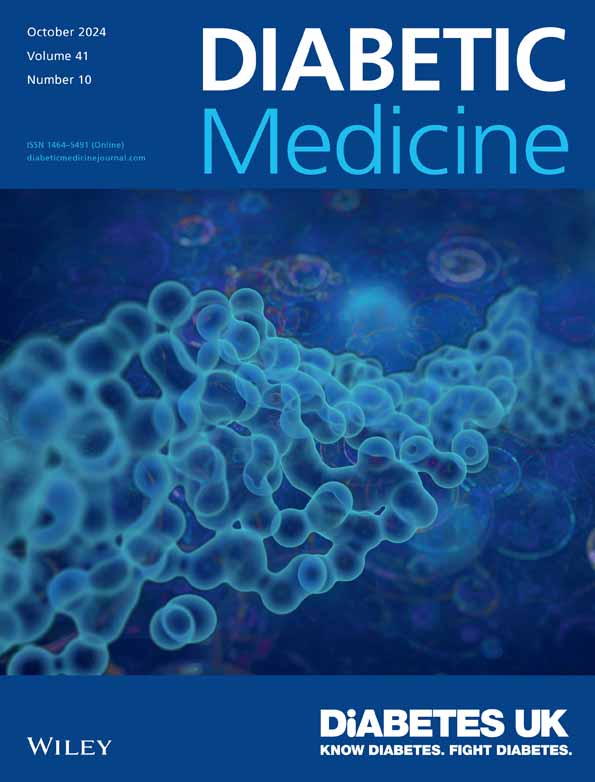Managing diabetic chronic kidney disease in pregnancy: Current clinical practice and uncertainties
Abstract
Background
Pre-gestational diabetes occurs in approximately 1% of pregnancies in the UK and increases the risk of adverse maternal and fetal outcomes. More women with type 2 than type 1 diabetes are now becoming pregnant and tend to have higher rates of obesity and other multi-morbidities. Chronic kidney disease (CKD) affects approximately 5%–10% of pregnant women with type 1 diabetes and about 2%–3% with type 2 diabetes. Diabetic chronic kidney disease (DCKD) increases the risk of preeclampsia, preterm birth, Caesarean section, small for gestational age (SGA) infant and infant admission to neonatal intensive care unit (NICU), and risks are higher compared to those with diabetes without CKD and those with CKD from other causes. Definitions of CKD in pregnancy are not standardised, and studies are generally small, observational, heterogenous, mainly include women with type 1 diabetes and often predate modern diabetes management such as continuous glucose monitoring and insulin pumps. Therefore, there is a lack of robust data to guide practice and clinical guidelines offer conflicting advice, without precise detail.
Aims
We present our approach to caring for women with diabetes and CKD in pregnancy based on available guidelines and clinical experience.
Discussion and Conclusion
Our practice is to aim for intensive targets for blood pressure and glycaemic control pre and during pregnancy, lower than suggested in many guidelines. The importance of multidisciplinary team work and patient centred care is emphasised. Using standardised prospective data collection to better understand the prevalence and outcomes of diabetes and CKD in contemporary pregnancy populations, is recommended to drive future improvements in care.

 求助内容:
求助内容: 应助结果提醒方式:
应助结果提醒方式:


